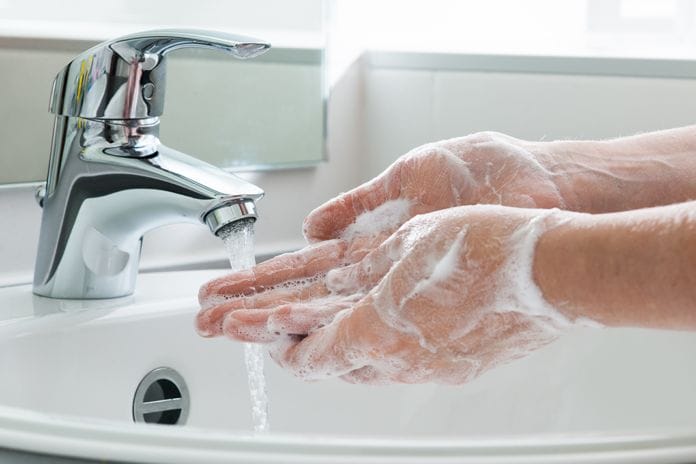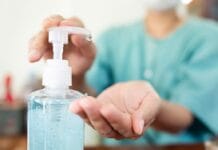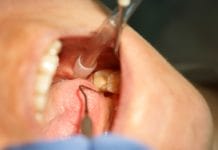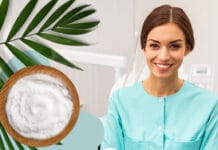Let’s take a quick break from teeth and all things dental for a moment and talk about our hands. More specifically, let’s talk about good hand hygiene and why we need to be talking about it.
When I was a wee dental hygiene student, handwashing was a very big deal. The first thing we had to do upon entering the clinic was scrub ourselves up to the elbows; no one touched a patient without clean hands, not even the instructors. For quick touch-ups, we had these big globes of 90% isopropyl alcohol hand sanitizer that were conveniently placed right at eye level as to make it easy to utilize (and ridiculously easy to bump your noggin on, but maybe that was just me). Utmost hand cleanliness was a well-emphasized standard that was designed to become an integral part of our education and daily routines. I imagine many of you can recall something similar. The optimist in me would like to think many of you maintain this standard even now, and that we all wash our hands thoroughly between patients. However, the realist in me knows many of you probably don’t. This is a serious problem.
Earlier this year, an oral surgeon friend of mine loaned me her copy of Better: A Surgeon’s Notes on Performance by Atul Gawande. In his opening essay, Gawande talks about the lack of appropriate handwashing amongst staff members at the hospital in which he is employed. If I am being frank, the essay is mildly horrifying. Everyone knows hospitals are “dirty,” but when reading about the amount of forming units of bacteria per square centimeter, you start to understand the severity of it all1. Would you want your surgeon to be the person with the five million bacterial colonies on their hands? Would you want that person tending to your wounds? Would you want that person to put his or her hands in your mouth? No, thank you, absolutely not.
Poor hand hygiene is certainly not a problem localized to Gawande’s hospital; infection control is a major area in need of improvement in nearly every hospital and healthcare setting. Dentistry is no exception; even the water may not be clean. I’ve been in dentistry for ten years total, and I’ve been practicing clinically in private practice for six. In each office I have ever worked in, there has been at least one employee with poor hand hygiene. I will be the first to admit I am not a perfect human being nor am I a perfect dental hygienist, but I am a mildly, compulsive germaphobe (one semester of microbiology ruined me). I would like to think my handwashing is better than most, but there is always room for improvement. So how do we become better?
First, we have to take the time to wash our hands thoroughly. If you are following the CDC guidelines for handwashing, then you should know it is nearly impossible to effectively wash your hands in less than one minute. Humming the Happy Birthday tune from beginning to end twice is sufficient for a 20 second scrub time, but that doesn’t account for wetting, lathering, rinsing and drying2. Thorough scrubbing is key to making sure as many bacteria as possible are removed from your skin. To take your time, you need to have the time; a task easier said than done in the day of a dental hygienist.
This is where the second part of this solution becomes critical. Using hand sanitizer is a suitable substitute for handwashing if your hands are not heavily soiled and handwashing is impractical at the time. So many of us walk around with hand sanitizers in or on our handbags (any Bath and Body Works fans out there?!), but it is under-utilized in the workplace. By keeping an alcohol-based hand sanitizer (the CDC recommends sanitizers that contain at least 60% alcohol) readily available, you might find that you are more apt to use it. To appropriate use hand sanitizer, be sure to thoroughly cover your hands with it and allow it to air dry completely. It should be understood, however, that there are strains of bacteria which hand sanitizers are ineffective against, such as norovirus3.
Neither handwashing nor hand sanitizing are perfect practices designed to make your hands entirely bacteria-free and ready for action, but minimal bacteria counts are easily attained if you are consciously trying to do so. Use your judgment as to which hand hygiene methods best suit you in your daily practice, but please, for the love of all things floss, use something on your hands before you put them to use.
SEE ALSO: 5 Infection Control Mistakes You Might Not Realize You’re Making
DON’T MISS: Should Essential Oils Be Used in a Dental Setting?
References
- Bedell, G. (2007, June 23). Review: Better by Atul Gawande. Retrieved from https://www.theguardian.com/books/2007/jun/24/booksonhealth.features1
- Handwashing: Clean Hands Save Lives. (2015, July 22). Retrieved from https://www.cdc.gov/handwashing/show-me-the-science-handwashing.html
- Handwashing: Clean Hands Save Lives. (2017, July 13). Retrieved from https://www.cdc.gov/handwashing/show-me-the-science-hand-sanitizer.html












